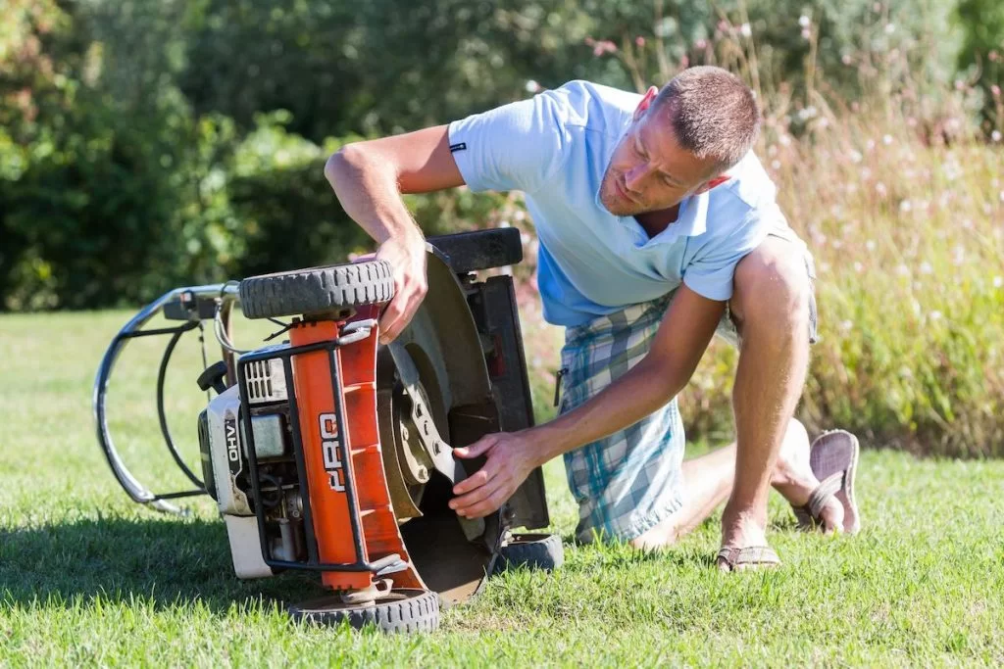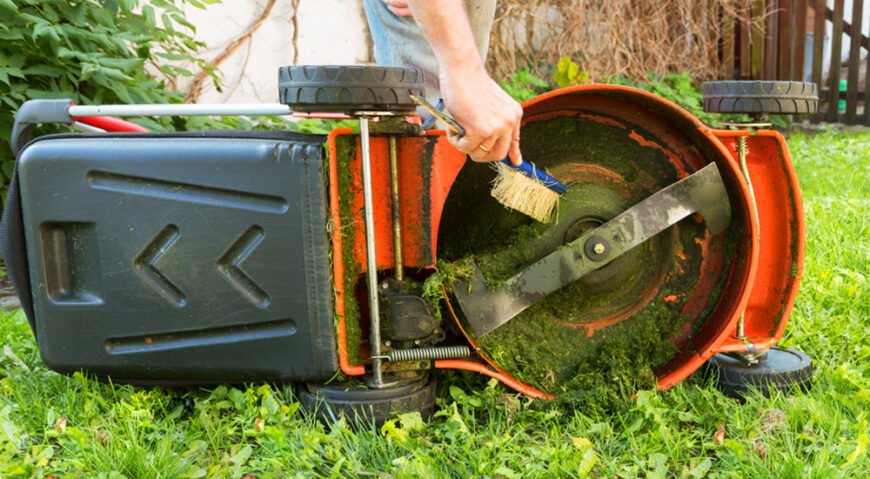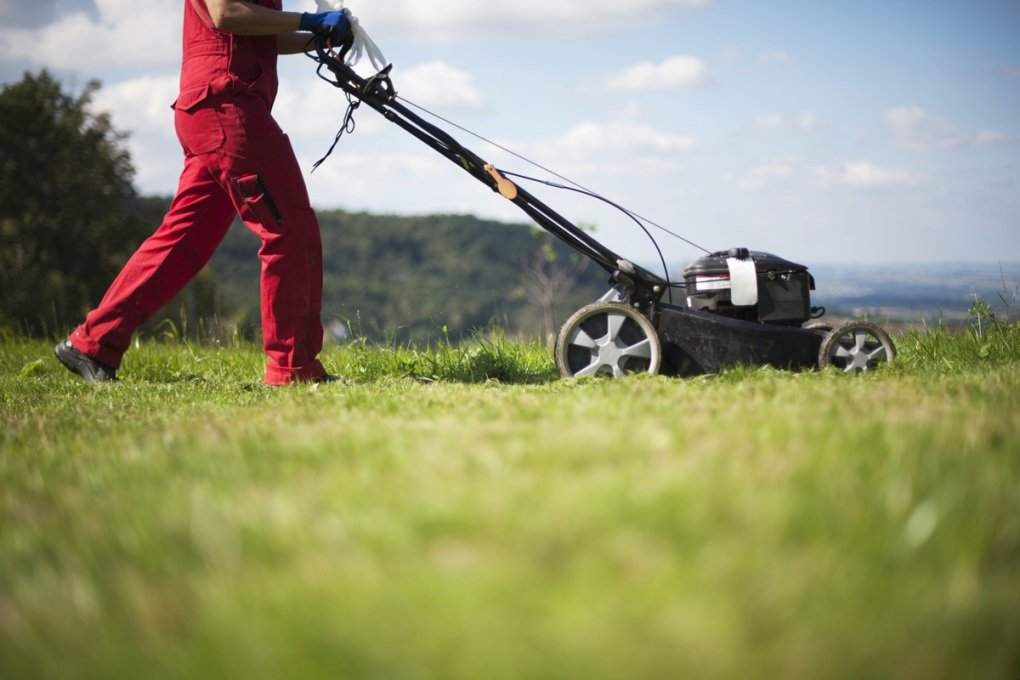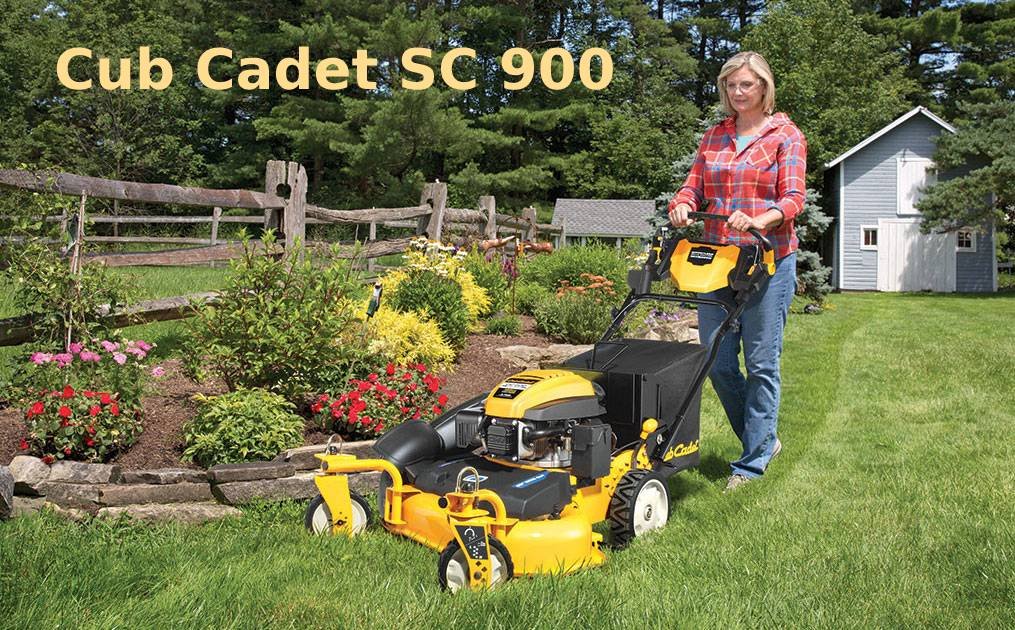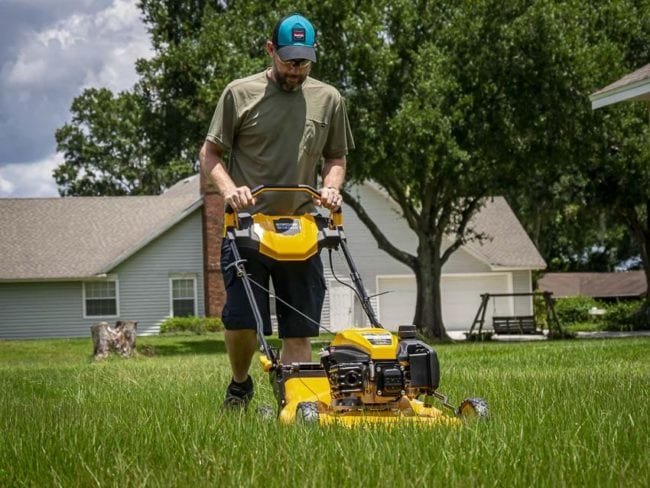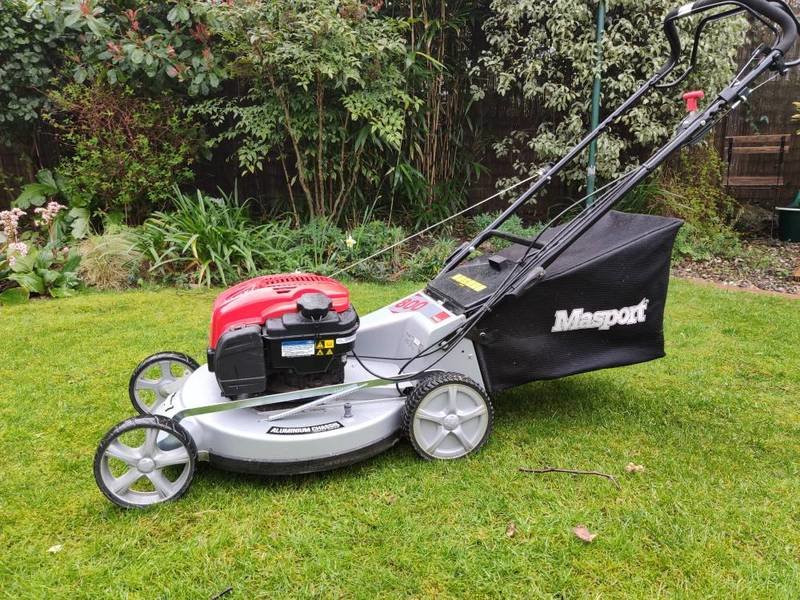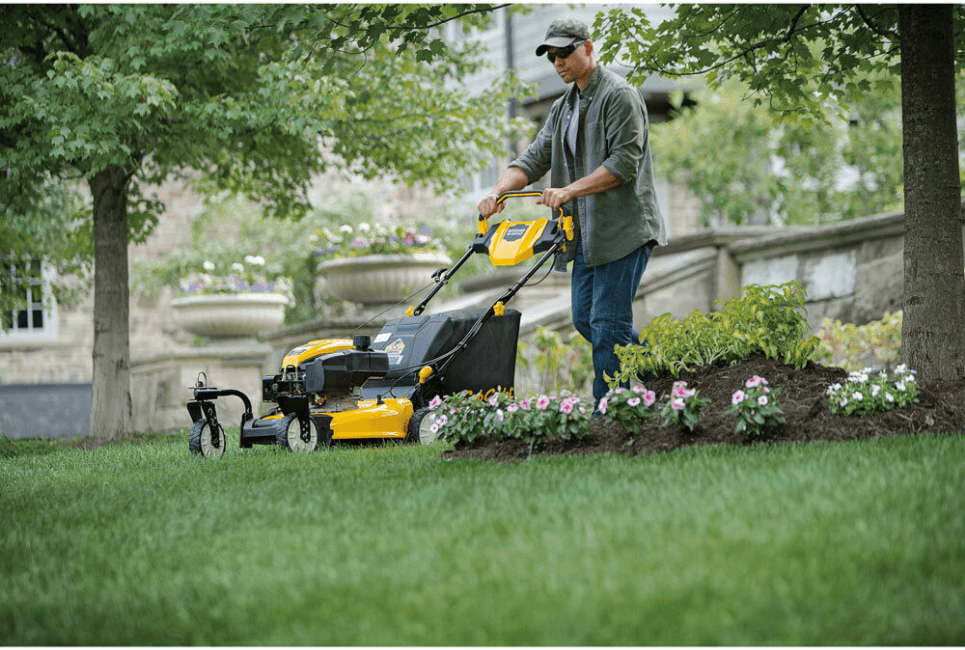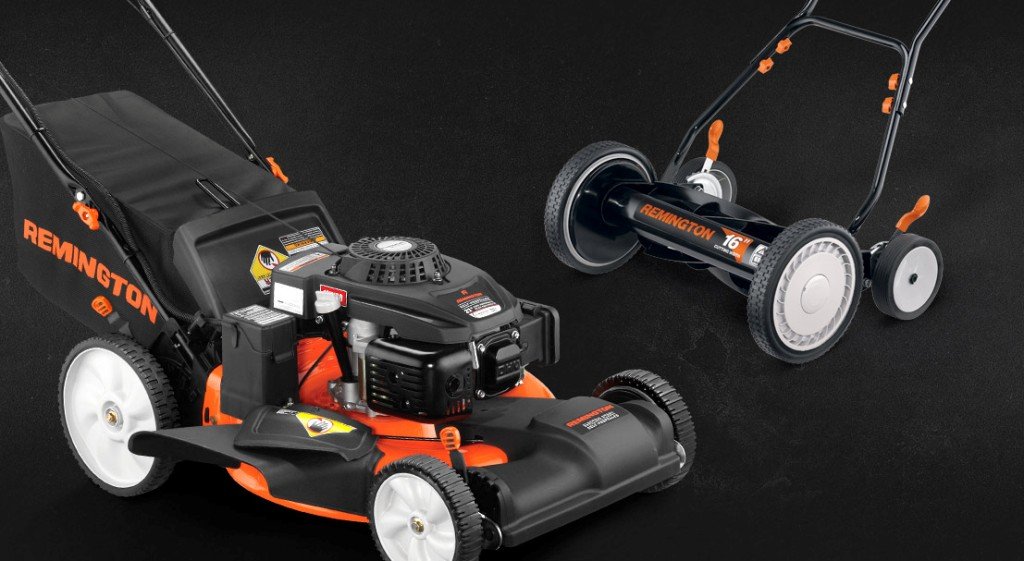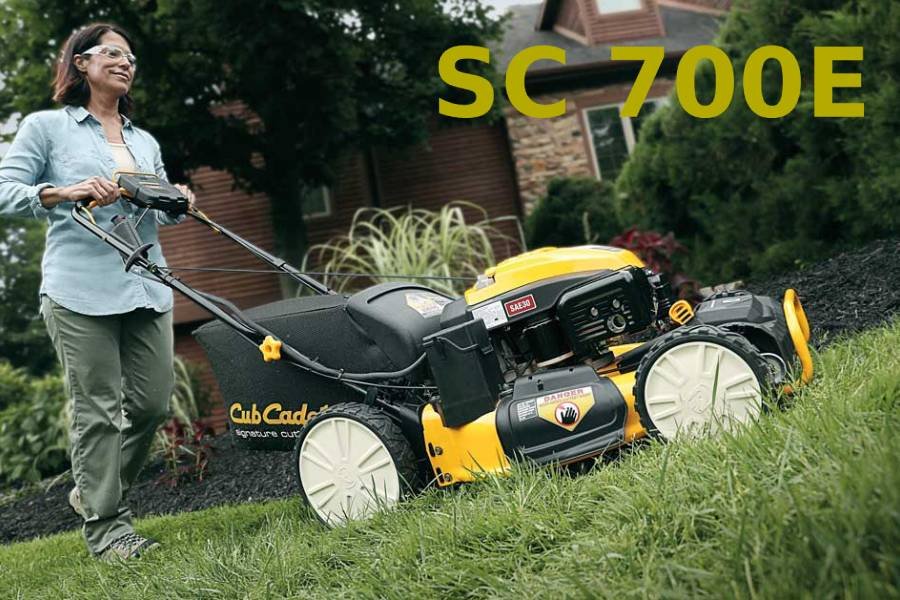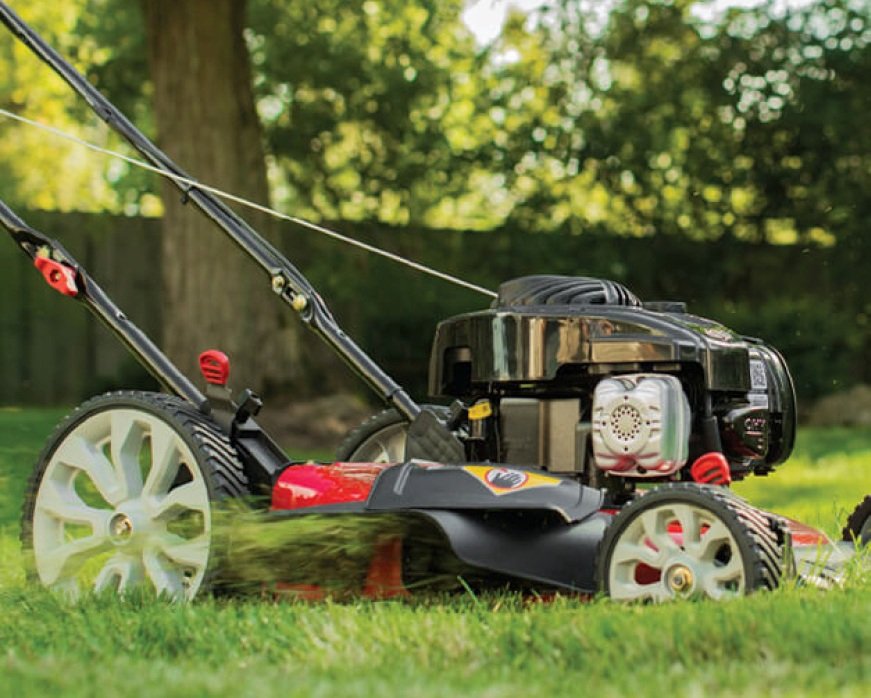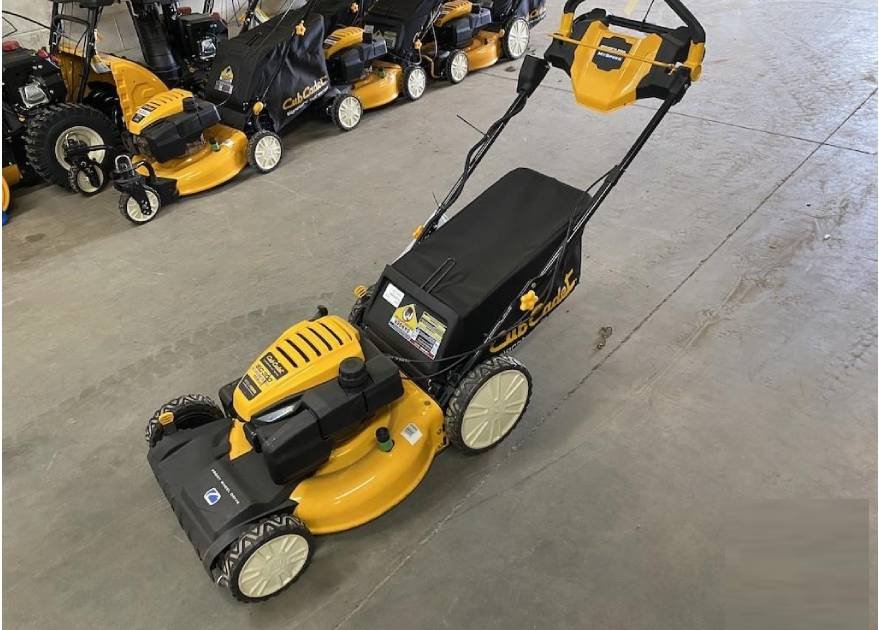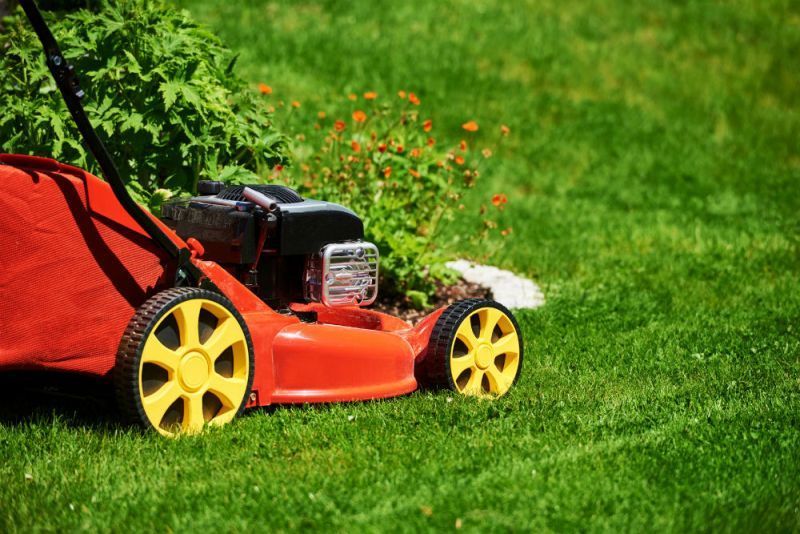When you are mowing your lawn, it’s annoying to have to take a break to clean the mower deck again and again. It’s obvious that grass will get stuck under the mower deck and it will be difficult to get it out.
Buying a new lawnmower is pretty easy. You can use it without worrying about grass sticking under the deck for a few weeks.
As the grass clippings accumulate under the mower, it will reduce the mower’s efficiency and make cleaning it difficult.
This will substantially increase the duration it takes your lawnmower to finish its job, not to mention that it will take more time every time you want to get the thing clean.
Luckily, there are a few remedies that you can use that will either make it go away, or it will slow the issue so it doesn’t spread. Older remedies such as use of chemicals that harm the lawn is not a desirable option, as you don’t want the issue to spread to more of your grass.
Always remember to remove the spark plug from your lawnmower when tinkering, to avoid starting it unexpectedly or causing damage to your machine.
Why You Need to Prevent Grass Build-Up on the Underside of the Mower Deck
Mowing decks should always be free of clippings. It’s not just for show. (Unless you lift up the deck, you never see under the deck.) In the event that you fail to do so, the following consequences can occur:
Chutes Becoming Blocked
A build-up of clippings will eventually narrow the openings to the grass catcher and discharge chute, which in turn will result in more clumping and build-up on the undercarriage. The clumps left behind can promote the growth of things such as lawn fungus, which is bad for your mower and bad for your lawn.
Deck Becoming Corroded
When wet grass is stuck to a metal deck for a long time, it can corrode. If that happens, you’re in for trouble. Mold and mildew can also develop on a mower deck that is coated in wet clippings. It stinks when it festers in a garage or shed.
More Strain on Your Mower
If airflow is restricted or the exit chutes are blocked, your mower will work harder to deliver the cut, which is not good for your mower, particularly the motor, and can shorten its lifespan.
Increased Fuel Consumption
In addition to shortening the mower’s lifespan, clippings also consume more fuel to mow the same amount of lawn.
Poor Performance
Last but not least, that mower you once admired for its work is now barely scraping by with a C-.
The following is a list of methods that you can use to help minimize the sticking of grass to your lawn mower deck.
Why Does Grass Stick to the Mower Deck?
For the machine to work at all, the mower deck has to be spotlessly clean and free of any impediments. Some newer lawn mowers have even been coated with a substance that stops grass from getting on them.
Grass sticking to the underside of the lawn mower can not only make it a visual mess, but it also has a devastating impact on its functionality. The grass clippings will build up over time and they are sure to contribute to rust on the blades.
This blocks the exit ports and restricts the airflow coming from and around the blades. The grass clippings are a source of high moisture and can significantly increase the corrosion and rust that would ordinarily exist on the surface.
If you neglect cleaning the clippings and drying the mower deck regularly, you will have trouble when the deck starts to rust because it will happen quickly.
Manually scraping paint off with a conventional paint scraper or an ice scraper won’t help much.
Blades Will Impact the Amount of Sticking
You probably noticed a surprising difference in the number of clippings underneath your lawnmower after changing the blades in your lawnmower. The blades you install on your lawn mower will have a major impact.
Firstly, mulching blades, also called three-in-one blades, tend to restrict airflow beneath the lawnmower deck. This prevents clippings from flying straight out of the discharge port.
It reduces the amount of clippings that get stuck since most of them are kept under the deck. On the other hand, you might want to consider high-lift blades.
It’s a two-in-one variant that really improves discharge from the lawnmower, as well as preventing clippings from sticking to the ground.
Spray the Underside
For the grass to not stick to the surface, you might consider using a spray lubricant, such as WD-40.
By spraying WD-40 thoroughly on your mower deck, you will be able to prevent clippings from getting stuck under it. It is one of the most popular lubricants in use today.
To prevent the clippings from getting stuck, apply WD-40 before you start mowing on a regular basis.
In addition to nonstick cooking sprays, you can also use specific mower deck sprays available at your local hardware store.
The lubricant will keep the mower deck slick and the clippings will fall off. It’s a pretty simple method, but it’s one you will need to repeat often.
Use a Wire Brush
One good thing you can do after a mowing session is to use a wire brush. Note that a lot of the clippings will still be on the blades and tops of one another.
That said, to avoid future clippings from getting tangled, take care not to accidentally catch the clippings as they grow out over time.
A wire brush is a wonderful idea to use on the lawnmower. The wire brush will be a handy accessory after you are done mowing. This heavy-duty power sweeper gets rid of dried out grass clumps with ease.
Don’t forget that letting a few days go by before mowing the grass will leave the grass blades rusty and damaging over time.
Rather than mowing first and then coming back with a wire brush, clean it immediately after you finish. That way, it will remain clean and there’s no worry of rust developing.
Use Vegetable Oil Instead of Motor Oil
A few people may have mentioned using old motor oil on a lawn mower’s deck to stop blades from sticking to the surface. However, that might not be the best idea.
Because oil does the job of preventing a cutting blade from cutting through your lawn, there’s always a concern for when the oil spills on the grass itself. When you make use of motor oil on your lawn, oil spills are likely to occur.
The moment you least expect it, the ground will have patches and the grass will have withered. If you want to stop this from happening, you should use vegetable oil.
Vegetable oil contains the same properties as engine oil but has a lot of natural ingredients so it will not hurt the grass like its petroleum based counterpart.
As a lesser-known tip, this is one that will change the way you’re using your lawnmower.
Maintaining the Motor
Ideally, you should maintain your mower regularly. If you use high-lift blades or other blades as mentioned above, you may be able to prevent long-term problems. Here’s a comprehensive guide to lawnmower maintenance.
You should remove the spark plug first, because turning the lawnmower’s blade by hand has the potential to cause serious injuries if the engine starts.
To remove the caked grass from the sides, you need to remove the spark plug or the wire attached to it before you begin scraping.
The use of gardening gloves is a wise idea in this regard as they make it easy to remove large clumps of grass without hurting your hands.
Occasionally, you might want to wet the surface of the deck if grass is stuck too tightly.
You can also use an air hose to blow off all the grass. For the best results, use an air hose with a nozzle, and this will help you completely get rid of the problem.
It is also necessary to clean the air filter, which keeps debris from entering the engine.
In the first place, you need to clean the filter thoroughly using an air hose. After that, place the filter in a tub along with dish soap.
Don’t let the air filter completely dry out. Check the manual to find out if it can be put in a tub full of water and washed.
To remove leftover grass from the mower deck, use a pressure washer. However, remember that water can cause rust and corrosion.
Frequently Asked Questions
A coating can be applied to your mower deck to prevent grass from sticking. You can purchase coatings or make your own using vegetable oil and dish detergent. Keeping the deck clean requires monthly application of the coating.
To prevent grass from sticking to the deck, wipe a small amount of vegetable oil on a rag and wipe it over the deck. If you don’t do this after cleaning the deck, it will be difficult to clean.
If you want to remove the grass from the deck safely, you should pull it off by hand. In lieu of removing the grass by hand, you can use a brush or pressure washer to clean the deck.
Grass that sticks to your mower deck should be cleaned thoroughly.
Be sure to choose the method that is best for you among the various options available.
The grass can be removed by hand, with a brush or pressure washer, or with a garden hose. You can also buy a deck cleaner to help clean the deck quickly.

